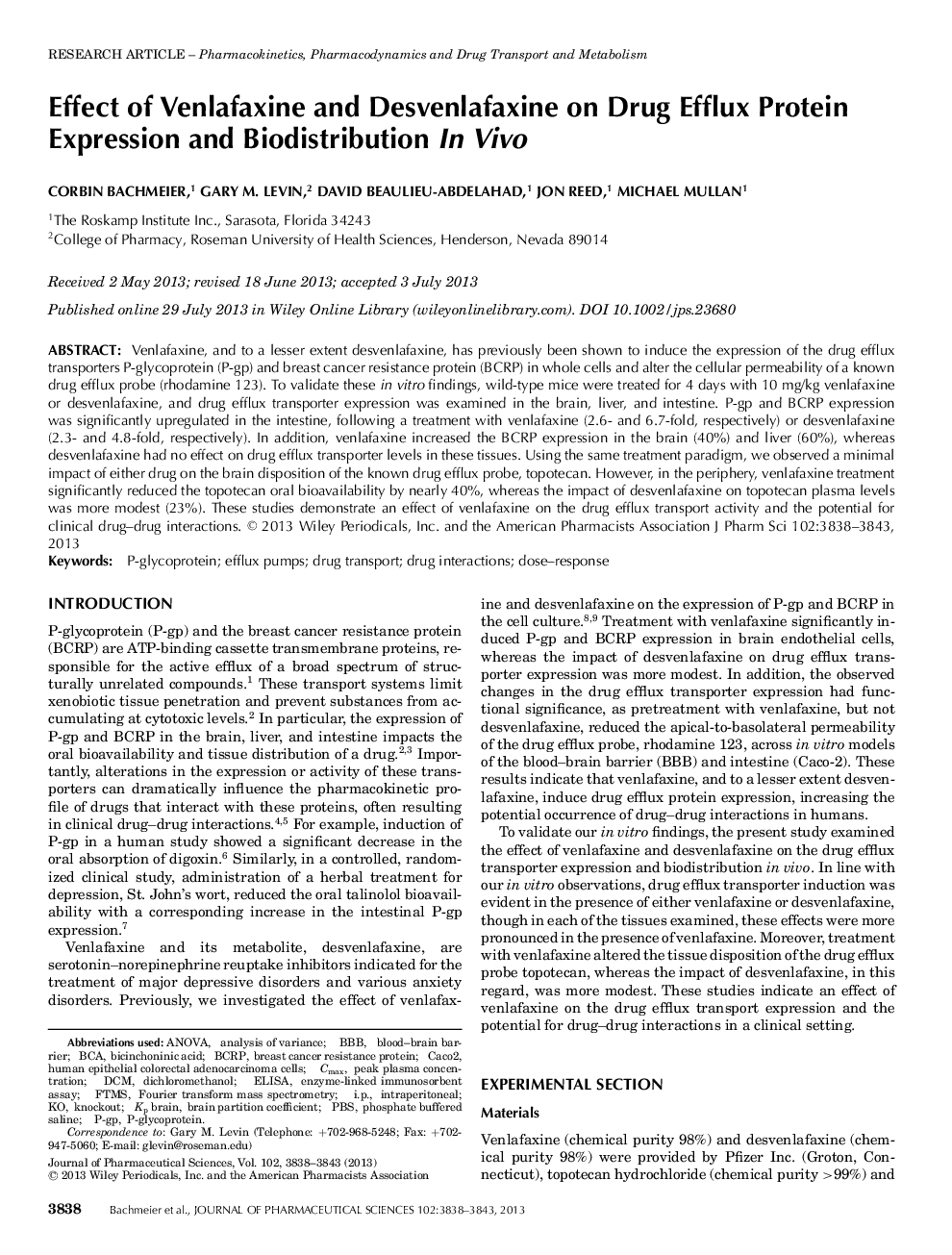| Article ID | Journal | Published Year | Pages | File Type |
|---|---|---|---|---|
| 10162548 | Journal of Pharmaceutical Sciences | 2013 | 6 Pages |
Abstract
Venlafaxine, and to a lesser extent desvenlafaxine, has previously been shown to induce the expression of the drug efflux transporters P-glycoprotein (P-gp) and breast cancer resistance protein (BCRP) in whole cells and alter the cellular permeability of a known drug efflux probe (rhodamine 123). To validate these in vitro findings, wild-type mice were treated for 4 days with 10Â mg/kg venlafaxine or desvenlafaxine, and drug efflux transporter expression was examined in the brain, liver, and intestine. P-gp and BCRP expression was significantly upregulated in the intestine, following a treatment with venlafaxine (2.6- and 6.7-fold, respectively) or desvenlafaxine (2.3- and 4.8-fold, respectively). In addition, venlafaxine increased the BCRP expression in the brain (40%) and liver (60%), whereas desvenlafaxine had no effect on drug efflux transporter levels in these tissues. Using the same treatment paradigm, we observed a minimal impact of either drug on the brain disposition of the known drug efflux probe, topotecan. However, in the periphery, venlafaxine treatment significantly reduced the topotecan oral bioavailability by nearly 40%, whereas the impact of desvenlafaxine on topotecan plasma levels was more modest (23%). These studies demonstrate an effect of venlafaxine on the drug efflux transport activity and the potential for clinical drug-drug interactions. © 2013 Wiley Periodicals, Inc. and the American Pharmacists Association J Pharm Sci 102:3838-3843, 2013
Related Topics
Health Sciences
Pharmacology, Toxicology and Pharmaceutical Science
Drug Discovery
Authors
Corbin Bachmeier, Gary M. Levin, David Beaulieu-Abdelahad, Jon Reed, Michael Mullan,
